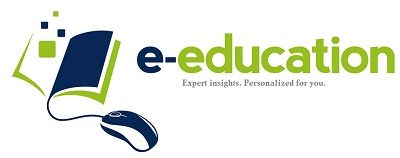Learning how to write is a fundamental skill that plays a crucial role in a child’s development. It opens up a world of possibilities, allowing them to communicate effectively, express their thoughts, and engage in lifelong learning.
Kindergarten is a critical stage in a child’s education where they begin to explore various aspects of language and literacy.
Teaching writing skills at an early age can significantly benefit children, empowering them with essential tools for success.
In this article, we will explore the importance of starting early when it comes to teaching kindergarten kids how to write.
Important to start early learning how to write for kindergarten kids
Writing is an essential skill that plays a crucial role in a child’s educational journey. It is the foundation of communication, allowing individuals to express their thoughts, ideas, and emotions.
Early exposure to writing and literacy has proven to be highly beneficial for children, particularly in the kindergarten years.
We will explore the importance of starting early with writing instruction for kindergarten kids and the numerous benefits it brings.
1. Development of Fine Motor Skills
Writing involves the coordination of various fine motor skills, such as holding a pencil, controlling hand movements, and manipulating objects.
Kindergarten kids who begin their writing journey early have the opportunity to develop and refine these skills, setting a strong foundation for future writing tasks.
As they learn to hold a pencil correctly and make controlled movements, their hand-eye coordination and dexterity improve, enabling them to produce legible and coherent written work.
2. Cognitive Development
Writing is a cognitive process that engages the brain and fosters critical thinking skills. When children start learning pre writing skills for nursery an early age, they are exposed to the concept of organizing their thoughts, structuring sentences, and conveying meaning through words.
These mental processes enhance their cognitive abilities, promoting logical thinking, problem-solving, and decision-making skills.
Preschool learning to write letters from an early stage develop stronger cognitive skills, which positively impact their overall academic performance.
3. Language Development
Writing and language development go hand in hand. When children learn to write, they simultaneously enhance their vocabulary, grammar, and comprehension skills.
By actively engaging in writing exercises, kindergarten kids acquire a broader range of words, learn how to use them effectively in sentences, and develop a deeper understanding of language rules.
Early exposure to writing helps children become more confident and articulate in expressing themselves, both verbally and in written form.
4. Creativity and Imagination
Writing is a creative outlet that encourages children to explore their imagination and express their thoughts in unique ways.
Early writing experiences in kindergarten allow children to tap into their creativity, invent characters, and construct stories.
By fostering a sense of imagination, writing promotes divergent thinking, problem-solving, and the ability to think outside the box.
Kindergarten kids who engage in early writing activities are more likely to develop strong creative skills, which can benefit them throughout their academic and personal lives.
5. Communication Skills
Writing is a powerful means of communication, and starting early with writing instruction helps kindergarten kids develop effective communication skills.
Fun writing for kindergarten helps in gaining the ability to convey their ideas, feelings, and experiences to others in a clear and coherent manner.
Effective written communication is a valuable skill that carries over into various aspects of life, including academics, social interactions, and future career opportunities.
Early exposure to writing equips kindergarten kids with the tools they need to communicate effectively and confidently.
6. Academic Success
Writing is a fundamental skill that is assessed and valued throughout a child’s academic journey. Kindergarten kids who receive early instruction in writing gain a head start in their academic pursuits.
They become proficient in expressing themselves through writing, which is essential for various subjects like English language arts, social studies, and science.
Moreover, early writing instruction helps children develop a positive attitude towards learning and academic tasks, setting a strong foundation for future educational success.
7. Self-Expression and Emotional Development
Writing provides a platform for self-expression and emotional development. Kindergarten kids often struggle to articulate their thoughts and emotions verbally, but writing allows them to express themselves freely and openly.
By putting their thoughts on paper, children can explore their feelings, reflect on their experiences, and develop a deeper sense of self-awareness.
Writing becomes an emotional outlet that promotes self-discovery and personal growth, enabling children to develop a healthy relationship with their own emotions.
8. Lifelong Learning
Early exposure to writing in kindergarten instills a love for learning and a lifelong appreciation for the written word.
When children experience the joy of writing and witness the power of their words, they become more motivated and enthusiastic about learning.
Writing becomes a tool for exploration, creativity, and personal expression, inspiring children to continue their educational journey with curiosity and passion.
9. Reading Comprehension
Reading and writing are closely interconnected skills. When children learn to write, they also enhance their reading comprehension abilities.
Early exposure to writing in kindergarten helps children develop a deeper understanding of the written word.
As they engage in writing activities, they become more familiar with sentence structures, vocabulary, and grammar, which in turn strengthen their reading comprehension skills.
Kindergarten kids who start early with writing instruction often exhibit improved reading comprehension and become more confident and proficient readers.
10. Organization and Time Management
Writing involves organizing thoughts and ideas in a structured and coherent manner. Early writing instruction helps kindergarten kids develop organizational skills, enabling them to effectively plan and structure their written work.
They learn how to outline their ideas, create paragraphs, and sequence information logically.
Moreover, writing encourages children to manage their time efficiently, as they set goals, establish deadlines, and allocate time for writing tasks.
These organization and time management skills cultivated through early writing experiences are valuable not only in academics but also in various aspects of life.
11. Critical Thinking and Analysis
Writing encourages critical thinking and analytical skills in kindergarten kids. When children engage in writing activities, they are required to analyze information, evaluate different perspectives, and make informed decisions about how to express their thoughts effectively.
Writing prompts and exercises prompt them to think critically, consider multiple viewpoints, and support their arguments with evidence.
Early exposure to writing enhances kindergarten kids’ ability to think critically and analytically, skills that are essential for academic success and problem-solving in various real-world situations.
12. Cultural and Social Understanding
Writing provides an avenue for children to explore different cultures, perspectives, and social issues.
Kindergarten kids who engage in early writing activities are exposed to a wide range of literary texts, both fictional and non-fictional.
They can explore stories from different cultures, historical events, and societal topics. Through writing, children develop empathy, understanding, and awareness of diverse cultures and social issues.
Early exposure to writing fosters a sense of global citizenship and prepares kindergarten kids to become socially aware and culturally sensitive individuals.
13. Digital Literacy
In today’s digital age, proficiency in written communication extends beyond pen and paper. Early learning in writing for kindergarten kids includes digital literacy skills.
Children learn to navigate digital platforms, utilize word processing software, and express themselves through online mediums.
Early exposure to writing instruction equips kindergarten kids with the necessary skills to adapt to the ever-evolving technological landscape, enabling them to effectively communicate in both traditional and digital formats.
14. Confidence and Self-Efficacy
Starting early with writing instruction promotes confidence and self-efficacy in kindergarten kids.
As children develop their writing skills, they gain a sense of accomplishment and pride in their ability to convey their thoughts and ideas through written language.
Success in writing tasks encourages them to take risks, be creative, and express their unique voice. This increased self-confidence in writing spills over into other areas of their academic and personal lives, fostering a positive self-image and a belief in their own capabilities.
Parental Involvement and Support
Early writing instruction also involves parents and caregivers actively participating in their child are learning process.
Parents can play a vital role in supporting and encouraging kindergarten kids in their writing endeavors.
By engaging in writing activities together, parents and children can foster a strong bond and create a positive learning environment.
This involvement not only strengthens the child’s writing skills but also enhances communication, nurtures a love for learning, and promotes a lifelong love for writing.
Conclusion
Starting early with writing instruction for kindergarten kids is of paramount importance. It lays the foundation for the development of essential skills, such as fine motor skills, cognitive abilities, language proficiency, creativity, and effective communication.
The benefits of early writing instruction extend beyond academic success, fostering self-expression, emotional development, and a love for lifelong learning.
By providing kindergarten kids with opportunities to engage in writing activities, we empower them to become confident, capable, and skilled writers who can navigate the world with clarity and purpose.

